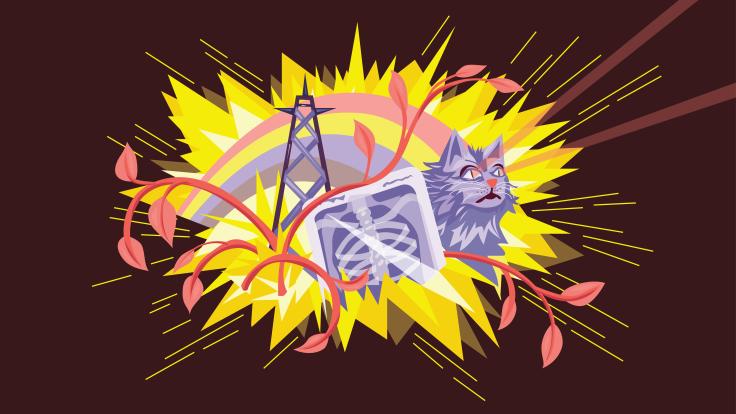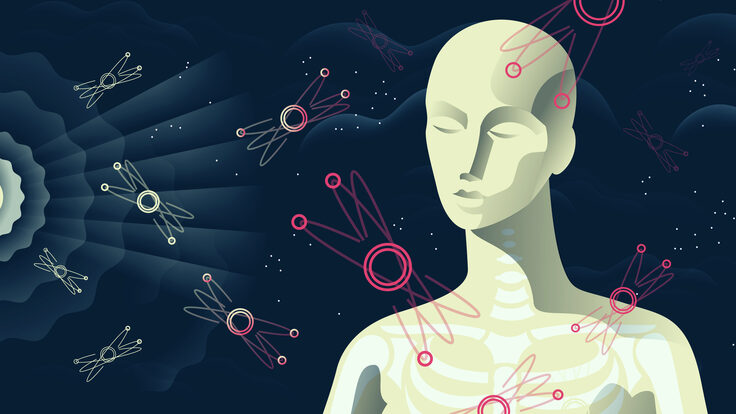If you had a scientist, a humanist, and a social scientist stranded on a desert island, and room in a life raft for just one of them, which one would you save? Don't base it on personal affection--but on which discipline you think can most benefit the future of humanity.
That's the premise of the "Raft Debate," at the College of William and Mary, in which a representative of three different disciplines defends why they should get the spot in the raft--or rather, why their discipline is the most important to the future of human civilization, and hence why they should be chosen to return to society and carry the torch. Three professors sit on stage with a blow up life raft in front of them and present their cases to an audience and group of judges, who ultimately decide the survivor.
"What’s the point of all this?," said W&M Dean of Graduate Studies and Research, Arts & Sciences judge Laurie Sanderson. "Certainly, one point is to have fun with an intriguing question and then go eat cake. Or maybe we’re showing that each one of these disciplines does have importance in society.”
The debate is good-natured and fun, demonstrated by the creative means that each professor uses to illustrate his or her case (to show that he was "fishing for arguments," the humanist handed the social scientist a fishing pole with a boot at the end). And to be totally objective, the representatives are challenged by one devil's advocate who argues that none of them deserve the raft (perhaps if they push it off the island, someone will find it who has a greater respect for cross-disciplines).
At this year's debate, the natural sciences were defended by particle and nuclear physicist David Armstrong, a professor at William and Mary who also does research at Jefferson Lab and TRIUMF.
Armstrong begins his defense of science with the allegory of Gilligan's Island. “Seven castaways on a deserted isle was the perfect microcosm for the academic world," he said.
The Captain represents government, helpful Mary-Anne education, dramatic Ginger the arts, and nosy Gilligan the social sciences. But the character they all turned to to save them was always the professor.
But Armstrong wasn't just talking about coconut radios. Rather, he argued that the essence of science, the study of reality, was what made it crucial to keeping society in balance.
"Science confronts the reality of nature of the universe around us," he said. "Reality, not swayed by rhetoric or force of emotionality. We are all quite literally stardust. What could be more human? What could be more poetic?" Later, in the rebuttals he added, “If you want to survive, if you want humanity to survive, you must understand how the world works. You need the scientist."
In the end, the devil's advocate actually argued that all three could find a way to fit on the life raft if they joined thoughtful forces. But the judges did have to crown a winner to keep with tradition, and Armstrong's arguments for natural science won him a seat on the raft and tremendous cheers from the crowd. What great weight does science bear, now that it has been chosen to ride back to civilization?
The content of this article was drawn from a piece in the Dog Street Journal, the daily paper and monthly magazine of William and Mary, and this article from their News and Events page. Check them out to hear more of Armstrong's arguments as well as what the other two professors had to say.







